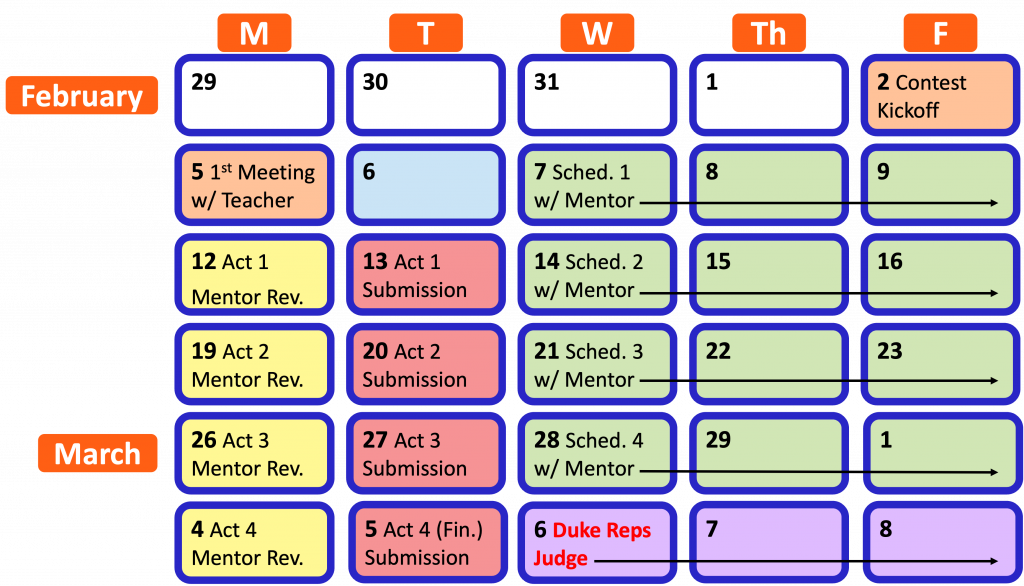CONTEST KICKOFF
The contest kickoff will be held on Friday, February 2nd, 2024, before the start of the design contest. An email will be sent to all teams with the date, time, and meeting information. A recording will be posted after the kickoff!
Contest Timeline
Contest Purpose
This contest introduces students to design thinking practices that apply concepts of artificial intelligence. Sponsored by Duke Energy, this contest focuses on the need to improve energy efficiency and reduce costs in individual homes. This contest has students working together to create a smart energy management system that establishes an “on”/”of” operating schedule for appliances/devices whose real power usage are measured in students’ own homes. Students will go through a design thinking process to model a smart energy management system.
Contest Overview
The Artificial Intelligence (AI) Design Contest consists of four activities that student design teams will each complete together. These activities scale with the complexity of the challenge and walk students through the process of designing for applications of AI to a smart energy management system developed through analysis of their own real home data.
Student design teams will familiarize themselves with concepts that relate home electricity use to the evaluation of power usage and energy consumption. Then, they will learn how to manually measure the power usage of appliances/devices found in their home, proceeding to (1) establish a home power schedule and (2) calculate the individual contributions of their devices to total home energy consumption. They will learn how to graph and interpret this data with respect to establishing new goals for the overall performance of all these devices as part of a specific home scenario. Then, teams will establish and graph a new power usage schedule that meets these design goals. Throughout the activities, teams are asked to discuss how their initial ideas about their home devices relate to what their data reveals. They are asked to justify changes they make in their home power schedule in order to meet the goals associated with their home scenario. Finally, students model a system of conditions that could use AI to implement smart energy management. Each team will synthesize what they have discovered to create (1) an executive summary of their findings and (2) a video presentation of their design process.
